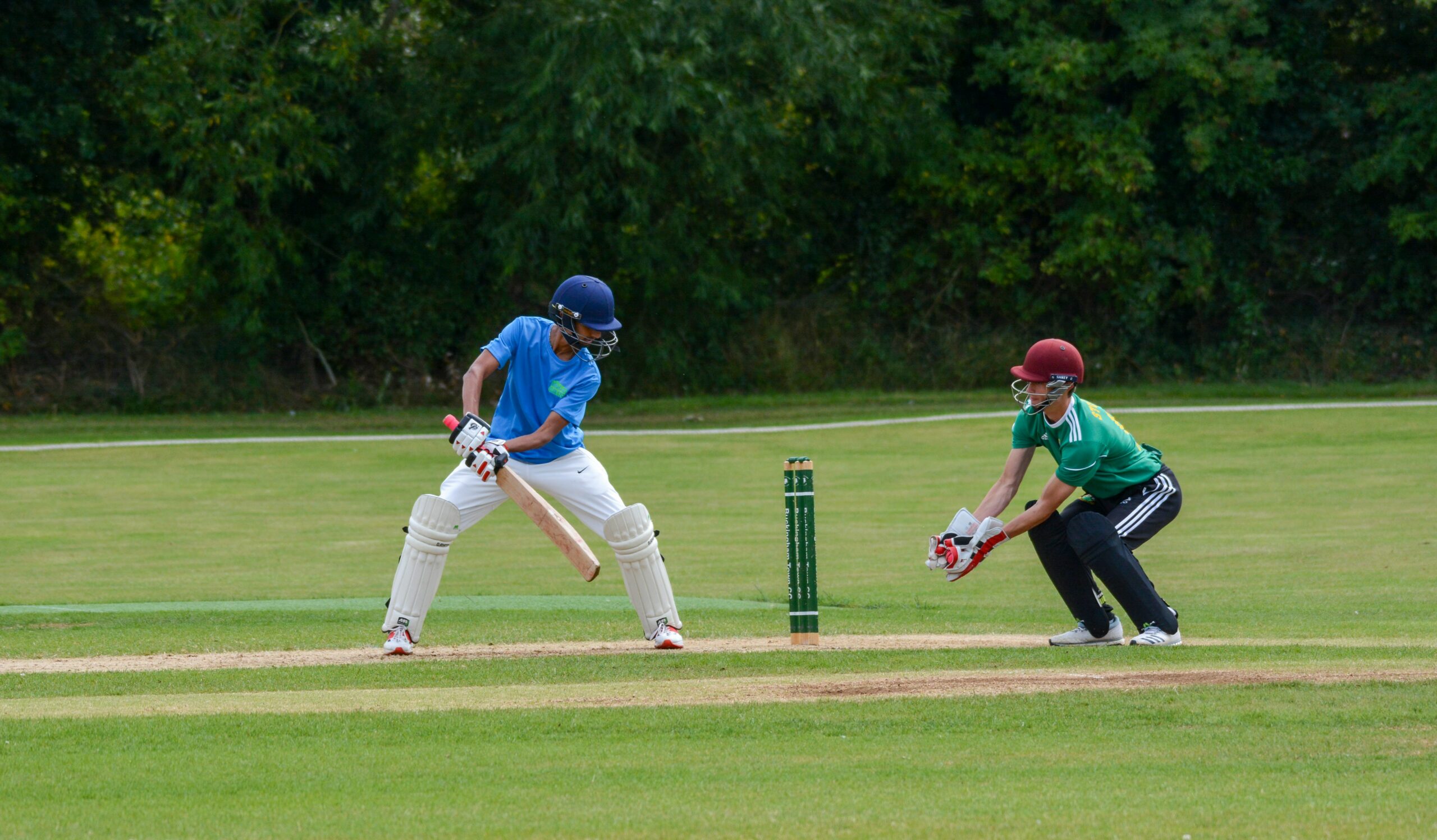Sports Betting and Game Theory: Strategies for Strategic Wagering
Online Cricket ID, Online Cricket ID: Sports betting is a popular form of gambling where individuals wager money on the outcome of sports events. It has grown in popularity over the years and is now a multi-billion dollar industry worldwide. People engage in sports betting for various reasonsincluding entertainmentthe thrill of competitionand the potential to make a profit.
In sports bettingparticipants place bets on the outcome of sporting eventssuch as football gamesbasketball tournamentsand horse races. These bets can range from simple win/lose predictions to more complex wagers involving point spreadsover/under totalsand in-game propositions. The odds of winning a bet are influenced by various factors such as the skill of the teams or players involvedinjuriesweather conditionsand other unforeseen variables.
Understanding Probability in Sports Betting
Probability is a key concept in sports betting that helps bettors assess the likelihood of an event occurring. In the context of wageringprobability is often expressed as oddswhich represent the chances of a particular outcome relative to all possible outcomes. Understanding how to interpret and calculate probabilities is essential for making informed betting decisions. By analyzing the probabilities of different outcomesbettors can identify potential value bets and make more strategic wagering choices.
In sports bettingprobabilities can be influenced by various factors such as player injuriesteam performancehistorical dataand external variables like weather conditions. By considering these factorsbettors can estimate the likelihood of specific outcomes and adjust their betting strategies accordingly. Having a solid understanding of probability can give bettors a competitive edge in the sports betting market and increase their chances of success in the long run.
Application of Game Theory in Wagering
Game theory is a valuable tool that can be applied to sports betting to analyze strategic interactions between bettors and bookmakers. By considering the decisions and motives of all parties involvedgame theory helps in predicting outcomes and devising optimal strategies. In the context of wageringgame theory allows bettors to think strategically about their betsconsidering not only their own preferences and beliefs but also how others in the betting market might act.
One key concept in applying game theory to sports betting is Nash equilibriumwhere each participant’s strategy is optimal given the strategies chosen by others. By understanding and potentially exploiting these equilibriabettors can gain a competitive edge in the betting market. Moreovergame theory sheds light on the complexities of decision-making in wageringhighlighting the importance of considering not only the expected value of a bet but also the strategies and incentives of other participants in the market.
Analyzing Risk and Reward in Betting
When it comes to sports bettingthe analysis of risk and reward is a crucial aspect that every bettor must consider before placing their wagers. Risk refers to the chance of losing money on a betwhile reward pertains to the potential profit that can be earned. Understanding the balance between risk and reward is essential in making informed betting decisionsas it allows bettors to assess the potential outcomes and determine if the potential reward justifies the associated risk.
Assessing the risk and reward in betting involves evaluating various factors such as the probability of a certain outcomethe odds offered by the bookmakersand the potential payout. By analyzing these factorsbettors can make more calculated decisions and optimize their chances of success in the long run. It is important for bettors to strike a balance between taking risks to maximize potential profits and minimizing risks to protect their bankroll from substantial losses.
Factors Influencing Strategic Wagering Decisions
In the realm of sports bettingstrategic wagering decisions are influenced by a multitude of factors that can sway the outcome of a bet. One key factor is the form and performance of the athletes or teams involved in the match. Analyzing their recent performancesinjuriesand overall statistics can provide valuable insights to inform betting decisions. Additionallyexternal factors such as weather conditionshome-field advantageand historical matchups can also play a crucial role in shaping strategic wagering choices.
Moreoverthe odds offered by bookmakers heavily influence strategic wagering decisions. Understanding the implied probabilities behind the odds can help bettors assess the value of a bet and make informed choices. Factors such as market sentimentline movementsand arbitrage opportunities can further impact decision-making processes in sports betting. By carefully considering these various factorsbettors can enhance their strategic approach and improve their chances of success in the world of sports wagering.
Optimal Betting Strategies for Different Situations
When it comes to sports bettinghaving a solid understanding of the various betting strategies and knowing when to apply them is crucial for success. Different situations call for different approachesand being able to adapt your strategy accordingly can lead to more favorable outcomes. For examplein a high-riskhigh-reward situation where the odds are against youemploying a conservative betting strategy can help minimize potential losses. Converselyin a lower-risk scenario where the odds are in your favorbeing more aggressive with your bets can maximize potential returns.
Analyzing factors such as the oddsyour bankrolland the level of confidence in your predictions can all influence the optimal betting strategy for a given situation. By carefully assessing these variables and adjusting your approach accordinglyyou can increase your chances of making profitable wagers over the long term. Rememberthere is no one-size-fits-all strategy when it comes to sports bettingso being adaptable and flexible in your approach is key to achieving success in this competitive landscape.
• In high-riskhigh-reward situationsconsider employing a conservative betting strategy to minimize potential losses.
• In lower-risk scenarios where the odds are in your favorbeing more aggressive with your bets can maximize potential returns.
• Factors such as oddsbankroll sizeand confidence level in predictions should all be considered when determining the optimal betting strategy for a given situation.
• Adapting and adjusting your approach based on these variables can increase your chances of making profitable wagers over time.
• There is no one-size-fits-all strategy in sports betting; flexibility and adaptability are key to success in this competitive landscape.
The Role of Information in Making Wagering Decisions
Having access to accurate and up-to-date information is crucial when making wagering decisions in sports betting. Information such as recent player injuriesteam performance statisticsand weather conditions can heavily influence the outcome of a game. By staying informed and analyzing relevant databettors can make more strategic and informed decisions when placing their bets.
Furthermorethe role of information extends beyond just the game itself. Understanding market trendsodds fluctuationsand insider tips can also provide valuable insights for bettors. Utilizing this information effectively can help bettors anticipate potential outcomes and adjust their strategies accordinglyimproving their chances of success in the world of sports betting.
Common Pitfalls to Avoid in Sports Betting
One common pitfall to avoid in sports betting is chasing losses. It can be tempting to try to quickly recover losses by placing larger bets or increasing the frequency of wagers. Howeverthis can lead to even bigger losses and a cycle of chasing losses that is difficult to break.
Another common mistake is betting with emotions instead of logic. It’s easy to let personal biases or attachment to a certain team cloud judgment when placing bets. Emotions can lead to irrational decision-makingwhich often results in poor betting choices. It’s important to stay level-headed and make strategic decisions based on analysis rather than emotions.
Utilizing Mathematical Models for Better Wagering Results
Mathematical models play a crucial role in improving the outcomes of sports betting. By utilizing complex algorithms and statistical analysisthese models can provide bettors with valuable insights into the probabilities of various outcomes. These models take into account a multitude of factorssuch as historical dataplayer performanceenvironmental conditionsand other variables to generate more accurate predictions.
Furthermoremathematical models can help bettors assess the risk and potential reward of different wagering options. By quantifying the likelihood of certain outcomes and calculating the expected value of betsindividuals can make more informed decisions when placing wagers. These models can also assist in developing optimal betting strategies based on specific objectiveswhether it be maximizing profits or minimizing losses.
The Future of Sports Betting and Game Theory Integration
With the rise of advanced technology and data analyticsthe future of sports betting is set to be heavily influenced by the integration of game theory principles. By leveraging game theorybettors can make more informed decisions and analyze various potential outcomes of sporting events. This strategic approach allows for a deeper understanding of the dynamics at play and can lead to more successful wagering strategies in the long run.
In the upcoming yearswe can expect to see an increased emphasis on using mathematical models and algorithms to optimize betting strategies in sports. Through the application of game theorybettors will be able to assess risk versus reward more accurately and adjust their wagers accordingly. This integration of game theory in sports betting not only enhances the decision-making process but also opens up new opportunities for bettors to capitalize on their predictions and gain a competitive edge in the ever-evolving landscape of sports wagering.
What is the importance of understanding probability in sports betting?
Understanding probability is crucial in sports betting as it helps bettors assess the likelihood of certain outcomes and make informed decisions when placing wagers.
How can game theory be applied in the context of wagering?
Game theory can be used to analyze the strategic interactions between bettors and bookmakershelping bettors develop optimal betting strategies based on their opponents’ potential moves.
What are some factors that influence strategic wagering decisions in sports betting?
Factors such as oddsteam performanceplayer injuriesweather conditionsand public sentiment can all influence a bettor’s strategic wagering decisions.
What are some common pitfalls that bettors should avoid in sports betting?
Common pitfalls in sports betting include chasing lossesoverestimating one’s knowledge or expertisebetting based on emotions rather than logicand not properly managing bankroll.
How can mathematical models be utilized to improve wagering results in sports betting?
Mathematical models can be used to analyze historical datacalculate probabilitiesand identify trends that can help bettors make more informed decisions and improve their chances of winning.
What does the future hold for sports betting and game theory integration?
The future of sports betting is likely to see a greater integration of game theory principlesadvanced analyticsand technology to further enhance the strategic decision-making process for bettors.






